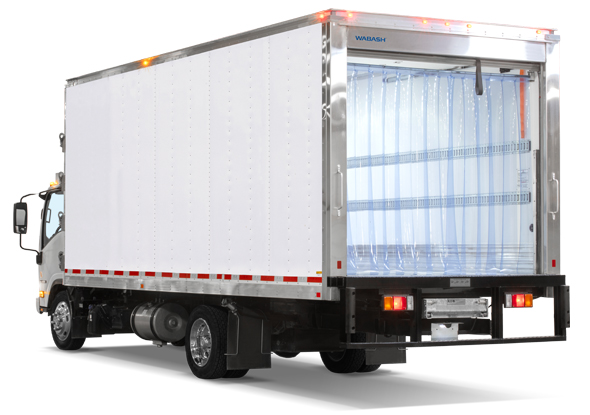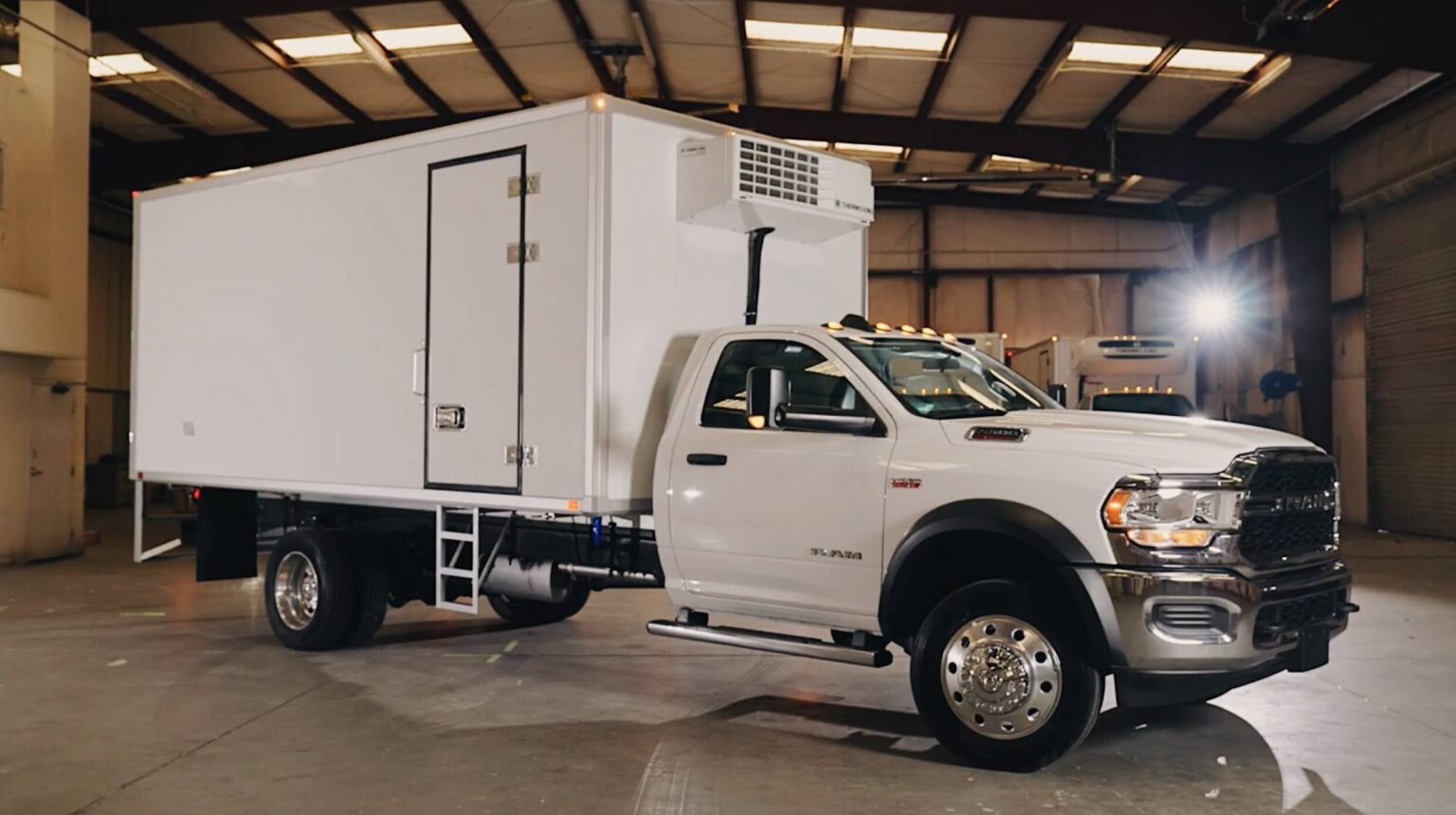Select Thermo King Truck Refrigeration for Long-Haul Quality
Select Thermo King Truck Refrigeration for Long-Haul Quality
Blog Article
Leading Technologies in Transport Refrigeration: Enhancing Efficiency and Safety
The landscape of transportation refrigeration is undergoing considerable transformation, driven by advancements aimed at improving both effectiveness and security. As these technologies proceed to develop, it is essential to discover their ramifications on operational methods and regulative conformity, triggering a better exam of exactly how they reshape the future of transport refrigeration.
Smart Temperature Keeping Track Of Solutions
In the world of transport refrigeration, smart temperature level tracking systems have arised as a critical development for guaranteeing the honesty of temperature-sensitive items. These innovative systems utilize Internet of Things (IoT) technology to give real-time data on temperature level fluctuations, allowing operators to preserve optimum conditions throughout the supply chain. By constantly tracking the temperature of refrigerated containers and automobiles, companies can promptly identify deviations that might jeopardize product quality.

In addition, clever surveillance systems commonly integrate automated signals and notices, enabling stakeholders to respond immediately to any possible issues. This proactive technique not only decreases the danger of wasting yet likewise boosts compliance with regulative standards regulating food safety and pharmaceutical transport.
The assimilation of information analytics within these systems also facilitates anticipating maintenance, assisting operators to anticipate prospective tools failures before they occur. This capacity decreases downtime and optimizes functional effectiveness, eventually causing set you back savings.
Eco-Friendly Refrigerants
Smart temperature level surveillance systems play an essential duty in keeping product high quality, but the effectiveness of transportation refrigeration additionally rests on the selection of refrigerants made use of. As environmental worries rise, the change towards environmentally friendly cooling agents has actually become necessary. Conventional refrigerants, such as hydrofluorocarbons (HFCs), are notorious for their high Global Warming Possible (GWP), adding dramatically to environment adjustment. In contrast, emerging choices like hydrocarbon-based cooling agents and hydrofluoroolefins (HFOs) present lower GWP alternatives, supplying both performance and sustainability.
These environmentally friendly refrigerants not only decrease ecological effect but additionally straighten with global laws targeted at phasing out unsafe substances. Their fostering can lead to enhanced energy efficiency, ultimately lowering operating costs for transport refrigeration systems. The use of all-natural refrigerants, such as ammonia and carbon dioxide, has actually gotten grip due to their exceptional thermodynamic residential properties and lower ecological footprint.
Purchasing green cooling agents is not merely a regulatory conformity step; it stands for a calculated choice that improves brand name online reputation and promotes client loyalty. thermo king truck refrigeration units. By prioritizing sustainable techniques, firms can contribute to a greener future while guaranteeing the honesty of transferred products
Advanced Insulation Products
Utilizing sophisticated insulation products is crucial for enhancing transport refrigeration systems, as they dramatically boost energy performance and keep regular temperature level control. Conventional insulation methods typically fall short in avoiding thermal transfer, resulting in enhanced energy intake and varying temperatures within chilled compartments.
Arising materials such as vacuum cleaner protected panels (VIPs) and aerogels offer superior thermal resistance, enabling thinner accounts without compromising efficiency. VIPs, for instance, use a vacuum cleaner layer to lessen convective and conductive warm transfer, making them suitable for space-constrained applications. Aerogels, recognized for their permeable and light-weight framework, provide extraordinary insulation while considerably lowering general system weight.
Additionally, incorporating stage modification products (PCMs) into insulation systems can better maintain temperature levels throughout transportation. These materials soak up and release thermal power, effectively buffering versus outside temperature variations.
The combination of these advanced insulation materials not just reduces the operational costs linked with power usage yet likewise prolongs the service life of temperature-sensitive products. As the transportation refrigeration sector remains to advance, the fostering of cutting-edge insulation innovations will be essential in improving both effectiveness and safety and security in cooled transportation.
Automated Path Optimization
The performance of transportation refrigeration systems is substantially improved with automated route optimization, which leverages advanced algorithms and real-time data to determine the most effective paths for delivery. By examining numerous aspects such as web traffic patterns, weather, and shipment home windows, these systems can dramatically minimize traveling time and gas intake.
Automated course optimization lessens human error and subjective decision-making, which can result in inefficiencies. This innovation enables fleet managers to allot sources extra efficiently, guaranteeing that chilled products preserve their required temperature level throughout the trip. By enhancing routes, business can additionally enhance client complete satisfaction through timely shipments.
Additionally, automated systems can adapt to unexpected situations, such as roadway closures or unexpected traffic spikes, permitting for dynamic rerouting. This flexibility not just secures the stability of temperature-sensitive products yet also adds to general operational effectiveness.
Executing automated path optimization can lead to significant expense financial savings while lowering the carbon impact linked with transportation. As services progressively focus on sustainability, this innovation attracts attention as a vital component in modern transportation refrigeration, aligning functional objectives with ecological obligation. Inevitably, automated path optimization represents a considerable advancement in the mission for effectiveness and safety in transportation refrigeration.

Real-Time Information Analytics
Automated path optimization considerably gain from the assimilation of real-time data analytics, which provides essential understandings into the performance of transport refrigeration systems. By utilizing real-time information, transport operators can keep an eye on temperature fluctuations and equipment performance, ensuring that subject to spoiling items are kept within required parameters throughout transit. This proactive strategy not only boosts the high quality of the transferred products however additionally alleviates the risk of putridity and loss.

In enhancement to boosting performance, real-time analytics improves safety by making sure compliance with regulatory standards for temperature control. This not only safeguards public wellness but likewise strengthens a firm's track record - thermo king transport refrigeration. As the transport refrigeration sector evolves, the combination of real-time information analytics arises as a cornerstone for driving innovation, sustainability, and operational quality
Final Thought
Finally, the improvements in transport refrigeration significantly enhance both effectiveness and safety within the market. Smart temperature level monitoring systems and real-time data analytics offer essential oversight, while environmentally friendly cooling agents and advanced insulation materials contribute to sustainability and power performance. Automated route optimization algorithms not just decrease travel time but also minimize environmental impact. Collectively, these innovations stand for a vital advancement in transportation refrigeration, ensuring conformity with governing criteria look these up and promoting a greener future.
The landscape of transportation refrigeration is undertaking significant change, driven by advancements intended at enhancing both efficiency and security.Smart temperature level tracking systems play an important role in preserving item high quality, but the performance of transportation refrigeration also pivots on the option of cooling agents utilized. Their fostering can lead to enhanced power efficiency, eventually decreasing operating costs for transportation refrigeration systems. Ultimately, automated path optimization stands for a significant improvement in the quest for effectiveness and safety and security in transportation refrigeration.
In final thought, the innovations in transport refrigeration considerably boost both efficiency and safety within the market.
Report this page